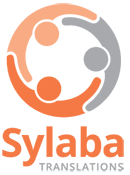Effective communication is essential in today’s varied culture, especially in programmes involving the community and health. In order to overcome language barriers and grant everyone equal access to crucial data and services, it is imperative to provide accurate and culturally sensitive translation services. Working with NAATI certified translators in Sydney for your health and community projects has several advantages, as this article discusses. These specialists can contribute to favourable outcomes thanks to their knowledge and certification, which can aid in effective multilingual communication.
The Benefits of Health and Community Projects
To improve wellbeing, lower health disparities, and promote social cohesion, health and community programming are essential. By assuring equitable access to healthcare, education, support services, and social initiatives, these projects seek to deliver vital information, resources, and services to a variety of populations. It is crucial to properly involve people from various cultural backgrounds in a range of languages in order to give them the information they need to make educated decisions and actively participate in these projects.
The Benefits of Professional Translation
In health and community projects, especially when it comes to multilingual communication, professional translation services are vital. In order to ensure accurate and culturally sensitive information transfer, translators serve as a bridge between different languages. They are fluent in multiple languages, are aware of other cultures, and can modify information to suit different audiences. Medical language and instructions must be translated accurately in health-related projects to guarantee patient safety and comprehension. Translators help community projects run smoothly by facilitating effective engagement and participation, which promotes inclusivity and trust.
What is NAATI Certification?
Australian organisation NAATI (National Accreditation Authority for Translators and Interpreters) establishes requirements for the translation and interpreting industry. The NAATI certification is a symbol of expertise and moral conduct. NAATI certified translators go through extensive testing and training to make sure their abilities reach industry requirements. Working with translators who have received NAATI certification offers guarantee of quality, accuracy, and adherence to ethical standards.
Benefits of Working With NAATI-Certified Translators in Sydney for Health and Community Projects
1. Language Proficiency and Cultural Competence
NAATI certified translators in Sydney have proven language proficiency in their chosen language pairs. They possess advanced language skills, enabling them to accurately translate complex medical or community-related content. Moreover, they have a deep understanding of cultural nuances, customs, and sensitivities, ensuring translations are culturally appropriate and effective. This proficiency and cultural competence contribute to the success of health and community projects, fostering trust and enhancing communication.
2. Accuracy and Consistency
In health and community projects, accuracy and consistency are paramount. NAATI certified translators adhere to high standards of translation quality, ensuring precise rendering of information. They pay attention to details, maintain consistency in terminology usage, and strive for linguistic clarity. This guarantees that important health instructions, community guidelines, educational materials, and other project-related content are accurately translated, minimizing the risk of miscommunication or misunderstanding.
3. Confidentiality and Ethical Practice
Health and community projects often involve sensitive and confidential information. NAATI certified translators adhere to strict codes of ethics and confidentiality, ensuring the privacy and security of the translated materials and the individuals involved. They handle sensitive information responsibly, maintaining professional integrity throughout the translation process. Working with NAATI certified translators provides peace of mind that confidentiality and ethical guidelines are upheld.
4. Access to Specialized Knowledge
NAATI-certified translators may have specialised knowledge in specific areas, such as medical or community-related terminology. This expertise enables them to accurately translate specialized content, including medical reports, health guidelines, community outreach materials, and more. Accessing this specialized knowledge ensures that the translations are contextually appropriate, technically accurate, and cater to the specific needs of the health and community projects.
Effective Collaboration with Translators
Effective communication is crucial to maximising the advantages of collaborating with NAATI certified translators in Sydney for health and community projects. Keep lines of communication open and offer glossaries, reference materials, and resources for the project to translators. To ensure correct translations in line with project goals, welcome input and clarification. Translators are better able to offer specialised translations that cater to the needs of the target audience thanks to collaborative talks that help them comprehend project requirements.
Quality Assurance in Translations: Tips for Ensuring Accuracy and Clarity in Translated Materials
Here are some tips for ensuring quality assurance in translations and achieving accuracy and clarity in translated materials:
Use Professional Translators
Always work with professional translators who are fluent in both the source and target languages. They should have a good understanding of the subject matter being translated and should be able to convey the intended message accurately.
Proofread and Edit
Once the translation is complete, make sure to proofread and edit the content for grammar, punctuation, spelling, and formatting errors. A second set of eyes can help catch errors that might have been overlooked during the translation process.
Review for Cultural Relevance
Ensure that the translated material is culturally relevant and appropriate for the target audience. It’s important to be aware of any cultural nuances, idioms, and colloquialisms that might not be understood by the target audience.
Use Glossaries and Style Guides
Create a glossary of key terms and phrases specific to the subject matter, industry, or organization. This helps to maintain consistency in the use of terminology throughout the translation process. A style guide can also help ensure consistent formatting and tone.
Conduct Community Checking
Consider involving members of the target community in the review process. This helps to ensure that the translation is easily understandable and culturally appropriate.
Use Technology
Use translation memory software to help improve the consistency and quality of translations. Translation memory software stores previously translated content for future reference, which can save time and improve accuracy.
Seek Feedback
Always seek feedback from the target audience to ensure that the translation is meeting their needs and expectations. Feedback can be gathered through surveys, focus groups, or user testing.
By following these tips, you can ensure that your translated materials are accurate, clear, and culturally appropriate and that they effectively convey the intended message to the target audience.
Overcoming Language Barriers: Best Practices in Translating for Multilingual Communities
Here are some best practices for translating for multilingual communities and overcoming language barriers:
- Identify the Target Audience: It’s important to understand the demographics of the target audience, including their languages, dialects, and literacy levels. This helps to determine the best approach to translation and ensures that the translation is accessible to the target audience.
- Use Professional Translators: Always work with professional translators who are fluent in both the source and target languages. They should have a good understanding of the subject matter being translated and should be able to convey the intended message accurately.
- Consider Cultural Nuances: Be aware of any cultural nuances, idioms, and colloquialisms that might not be understood by the target audience. Ensure that the translated material is culturally relevant and appropriate for the target audience.
- Use Clear and Simple Language: Use clear and simple language that is easy to understand for the target audience. Avoid using technical jargon and complex terminology that might be difficult to translate.
- Consider Visual Aids: Consider using visual aids, such as diagrams, pictures, or videos, to convey the intended message. This can be particularly helpful for audiences with low literacy levels or limited language proficiency.
- Provide Context: Provide context for the translated material, such as the purpose of the document, the intended audience, and any relevant background information. This helps to ensure that the translation is understood in the correct context.
- Conduct Community Checking: Consider involving members of the target community in the review process. This helps to ensure that the translation is easily understandable and culturally appropriate.
- Use Technology: Use technology to help improve the consistency and quality of translations. Translation memory software can store previously translated content for future reference, which can save time and improve accuracy.
By following these best practices, you can overcome language barriers and effectively communicate with multilingual communities. The key is to understand the target audience and to use clear and simple language that is culturally relevant and appropriate.
At Sylaba Translations, we have partnered up with the best NAATI certified translators in Sydney and across Australia to provide first-class certified translation services.
Whether you need to translate on behalf of your organization for Sydney’s CALD communities, or you need a personal document translated for your visa application… we are here to help!
Related Posts

Get a quote today
"*" indicates required fields
Subscribe today to receive the latest insights and updates from Sylaba Translations










